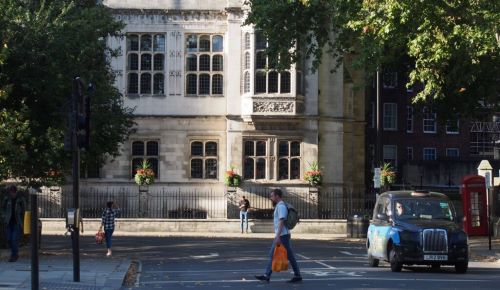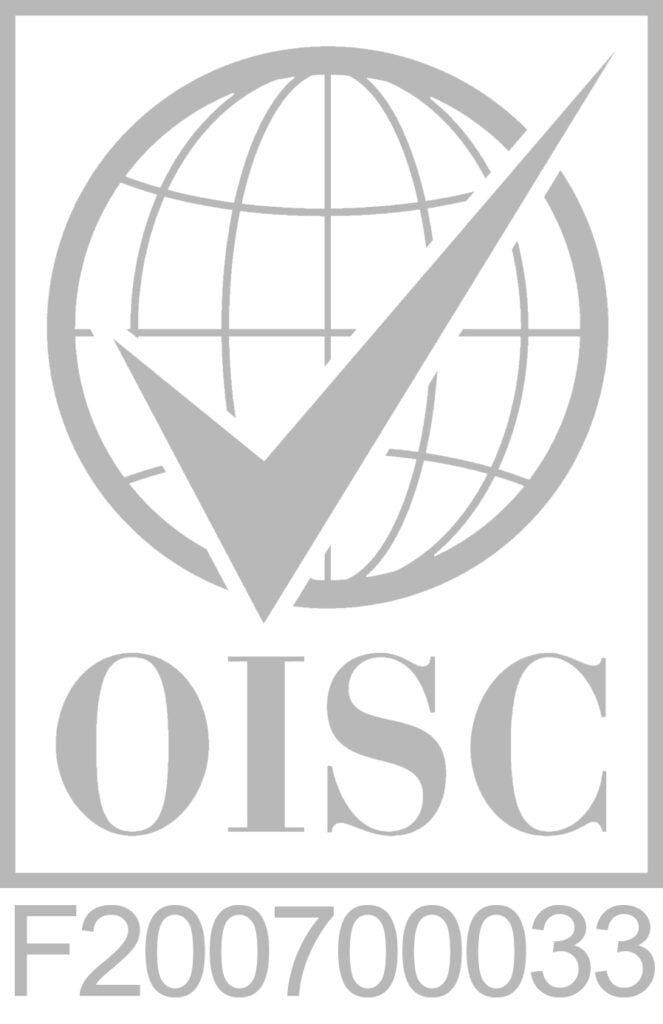

International Student Visa
Get In Touch
Student route is for applicants over 16 years of age who want to study in the UK on a course of further or higher education, a recognised foundation programme or a pre-sessional English language course.
Students who wish to study an English language course of 11 months or less have to apply for a short term student visa. This application is under a different part of the Immigration Rules.
Visitors are allowed to study in the UK for a maximum of 30 days provided it is not the main purpose of their visit.
ON THIS PAGE
International Student visa requirements
The applicant must:
- be a genuine student;
- have a valid Confirmation of Acceptance for Studies issued by the sponsor (the University);
- have sufficient funds to cover the cost of studies and living expenses;
- knowledge of English;
- TB test certificate (where required);
- if the applicant is under 18, parental or guardian’s consent to the visa application, living and care arrangements in the UK and permission to travel to the UK;
- written consent from the financial sponsor if the student had previously been sponsored within the last 12 months.
Genuine student test - relevant factors
Where the visa officer has reasons to doubt credibility of the student, they have to invite the student for an interview. Visa applications should not be refused on credibility grounds without an interview, unless there are strong reasons for doing so – for example, the student was refused on credibility grounds previously and there has been no change of circumstances and no additional information provided.
Factors that are taken into account in the assessment of credibility include:

- Previous immigration history;
- The applicant’s education history, study and post-study plans;
- Financial and personal circumstances of the applicant and any dependants – credibility of the source of funds, distance between the proposed accommodation and the intended place of studies;
- Course providers and agents – where the sponsor is under investigation or the Home Office has concerns about the agent managing the application, this may shed doubt on the credibility of the student.
If you are invited for an interview, it is very important that you attend. The interview can be arranged over the telephone or you may be invited to attend an interview at a designated location. Please remember that if you are called by the caseworker and asked if it is convenient for you to answer a few questions about your application, you should not rush to answer the questions there and then especially if you are in a public place or if you have poor connection. You should suggest the caseworker the time more convenient for you when you can hear the questions well and concentrate on the answers you give.
Confirmation of Acceptance for Studies (CAS) - what you need to know
Confirmation of Acceptance for Studies is issued by the sponsoring educational institution. It is an electronic document and it has its unique reference number.
You only need to have the reference number for the visa application, but if we act as your legal representatives we prefer to see a print out of the document to confirm that it has all the required details and is valid.
CAS should confirm personal details of the student, the course of study, finances and confirm how the student’s academic and English language abilities were assessed.
CAS should be issued not more than six months before the visa application date.
CAS can only be used once. If you have made an unsuccessful visa application using a CAS, you will need another CAS to apply again, even if you are applying for the same course and the information on the CAS (except the issue date) remains unchanged.’
Financial requirements
Financial requirement is met automatically in the following circumstances:
- if you are applying for extension of stay in the UK and have been in the UK for the last 12 months with a valid leave;
- or if you are applying for permission to study on a recognised foundation programme as a postgraduate doctor or dentist in training.
Where the financial requirement is not met automatically, the visa applicant has to have sufficient funds to pay the outstanding course fees as stated on the CAS and £1334 for each month of the course (up to a maximum of 9 months) if studying in London or £1023 if studying outside London. This money has to have been held in a bank account for a 28-day period.
So if your course is 3 years in duration and you’re studying in London, you will need to show £12,006 (£1334 x 9) in maintenance funds.
Nationals of the countries on the preferential treatment list do not have to show that they meet the financial requirement, but they will have to confirm that the financial requirement is met. The visa officer reserves the right to request proof of funds if they choose to do so.
List of countries exempt from the evidential requirement
· Australia
· Austria
· Bahrain
· Barbados
· Belgium
· Botswana
· Brazil
· Brunei
· Bulgaria
· Cambodia
· Canada
· Chile
· China
· Croatia
· Republic of Cyprus
· Czech Republic
· Denmark
· The Dominican Republic
· Estonia
· Finland
· France
· Germany
· Greece
· Hungary
· Iceland
· Indonesia
· Ireland
· Italy
· Japan
· Kazakhstan
· Kuwait
· Latvia
· Liechtenstein
· Lithuania
· Luxembourg
· Malaysia
· Malta
· Mauritius
· Mexico
· Netherlands
· New Zealand
· Norway
· Oman
· Peru
· Poland
· Portugal
· Qatar
· Romania
· Serbia
· Singapore
· Slovakia
· Slovenia
· South Korea
· Spain
· Sweden
· Switzerland
· Thailand
· Tunisia
· United Arab Emirates
· United States of America
Who needs a TB test certificate
If you are applying for entry clearance, you will need to provide a valid TB clearance certificate if you have been living in one of the countries on Appendix T list for six months prior to the application.
English language requirement
The required level is B2 for studying at a degree level or above or B1 for a pre-sessional course or a course below degree level.
The language requirement can be met in one of the following ways:
- Secure English language test to the required level;
- Assessment carried out by the University which is a Higher Education Provider with a track record of compliance with sponsorship duties;
- Being a national of a majority English-speaking country;
- Having been awarded a UK degree or a qualification equivalent to a UK degree from a majority English-speaking country;
- Having been awarded a GCSE or A-level in English (language or literature);
- If the applicant for extension of leave has a current Child Student visa or Tier 4 Child student visa;
- If you met the English language requirement at the required level in a previous application.
The sponsor has to state on the CAS how the English language requirement was met.
Certificate of Acceptance for Studies should confirm that the applicant was assessed in all four components (reading, writing, speaking and listening) and meets the required level. Where the knowledge of English was assessed through SELT (secure English language test), CAS should include the unique reference number for the test and the score for each component (reading, writing, listening, and speaking).
If you met English language requirement in your previous application as a student, the requirement is considered to be met in all subsequent applications.
Maximum period of study
If the course is below degree level, the maximum period of study from the age of 18 is two years.
At degree level, maximum period of study is five years, with the exception of degrees in architecture, medicine, dentistry, veterinary medicine, music (at Conservatories level) and law.
There is no maximum period on studies above degree level.
Most common grounds for student visa refusals
There are a number of reasons why a Student visa may be refused. Some examples of most common reasons are:
- missing documents;
- failure to show the required funds in the bank account for 28 consecutive days;
- outdated financial documents (for a period ending more 31 days before the date of the application);
- unsuccessful credibility interview;
- not responding to email or telephone enquiries from the Home Office.
Challenging student visa refusals
There is no right of appeal against refusal of a student visa application. You can apply for administrative review if the caseworker made a mistake.
Administrative review can be brought when the decision maker incorrectly applied the Immigration Rules or failed to apply a published policy or guidance in relation to the application, overlooked any of the documents submitted with the application or made a factual mistake which lead to the refusal of the application.
International Student visa - FAQs
When to apply for student visa
You can apply for the visa not earlier than six months before the course start date indicated on the CAS.
Can I switch into international student route in the UK?
You can switch to the international student route in the UK except if you are:
- a visitor;
- a short-term student;
- in the UK as a parent of a child in school, a seasonal worker or a domestic worker in a private household.
Can I extend my student visa if I want to take a new course?
If the start date of the new course is no more than 28 days from the expiry date of your current visa you can apply for further leave to remain in the UK.
If the course start date is more than 28 days from the end date of your visa, you have to apply from outside the UK.
Can I study part-time?
You can study part time if the course you are taking is above degree level and your sponsor is a Higher Education Provider with a track record of compliance (not a new licence holder).
Part-time students are not allowed to work and not allowed to bring their dependants to the UK.
Can I work as a student?
Your right to work will depend on the type of sponsor and the level of course you are studying. If you are studying full time at a degree level or above at a higher education provider with a track record of compliance
you will be allowed to work full time during vacations and before the course starts and up to 20 hours per week during the term time. If you are studying below a degree level you may be permitted to work up to 10 hours per week during the term and full time during the holiday period. Your right to work should be confirmed on your CAS and BRP card.
Students are not allowed to engage in business activities, which includes working as a self-employed or working for a company where they are a director or where they hold 10% or more shares.
Can students bring their dependants to the UK?
Post-graduate level students can have their dependants in the UK. This includes their spouse or unmarried partner and children under the age of 18.
We are happy to help
Last updated on September 14, 2023





